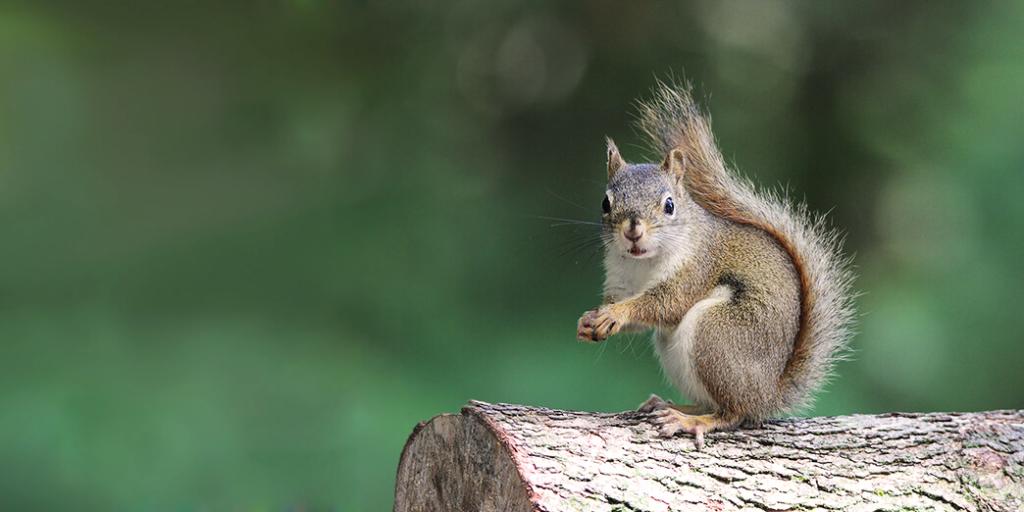
Lessons from "Squirrel Hunting"
As a young teenager, there was nothing I found more enjoyable than being in the great outdoors, whether it was playing organized sports or fishing with my grandparents. My friends and I particularly enjoyed Summer, when we would be gone from breakfast until dusk looking for things to do that wouldn’t get us into trouble (and sometimes things that did get us into trouble). We relished the opportunity to wander the neighbourhood and the nearby forests and creeks, creating lasting memories. But most exciting of all was a weekend with “Gramps and Granny.”
Several times a year, they would pick me up in their red and white F-150 Special with their Alaskan Camper on the back and we would head up the Fraser Canyon to our favourite campsite, about a three-hour drive. The campground is perched high above the mighty Thompson River Canyon, amongst the Lodgepole and Ponderosa pine trees—a very picturesque location that, as a kid, I considered to be far into the wilderness.
Gramps and I would fondly refer to our trip as “Squirrel Hunting,” even though it did not involve actually hunting squirrels; my grandfather had simply determined that pretending to do so would be very satisfying to my adolescent ego. We would typically spend the days counting squirrels and creating innovative devices to feed them nuts.
Little did I or my grandparents realize at the time that they were fulfilling the admonition to teach God’s ways to their kids and grandkids (Deuteronomy 6:6–7). Even though they enjoyed the adventure as much as I did, they did not let this distract them from using it to teach valuable life lessons. In hindsight, I have come to see how they taught biblical principles without realizing it—even though they were not students of the Bible, as far as I knew.
While sitting around the campfire and roaming the forest, they taught me the importance of doing no harm—to neighbour or to nature. “Always leave something as you found it, or better,” they would explain.
Gramps loved animals, and he would encourage me to enjoy them but never abuse them. He was an avid hunter, so he would teach the importance of it, and that respect and conservation were necessary. In essence, he was teaching me how mankind was to have dominion over the animals and was to be a responsible steward (Genesis 1:25–26; 2:15). The Mule Deer were abundant, and, to the best of his ability, Gramps explained their tendencies, migration patterns, and the part they play in the cycle of life along with all other creatures.
While whittling a propeller out of a piece of Lodgepole Pine and watching the squirrels scurry busily about the trees, he would explain what they were doing, and how if they didn’t collect their food now, they would starve in the harsh winter (Proverbs 6:6–8).
When our propeller was almost finished, he would stress the importance of the accuracy of design and not giving up (2 Chronicles 15:7). He taught me that, if we attached the propeller to a tree facing the right direction, it would turn in the wind potentially all day. He emphasized the importance of understanding the wind patterns of the canyon campsite and encouraged me to learn these and other vital aspects of outdoor living.
My Granny creatively taught me the art of campfire cooking; who would have thought you could cook a cob of corn or whole potato by throwing it into the campfire?
The lasting value of “Squirrel Hunting” was that it taught me to create teachable moments rather than demand them. Because I can recall what it was like to be a teenager many years ago, I know it can be a challenge to garner the undivided attention of our kids and grandkids. When I was forced to “sit and learn,” there was very little retention value—but when my grandparents created situations that I enjoyed, it was much easier to fulfill the admonition, “Train up a child in the way he should go, and when he is old he will not depart from it” (Proverbs 22:6). To this very day, I value those teachable moments.
God really does instruct His people to pass His ways on to their kids. If this article was of interest to you, check out our other resources available, like “The Bible, Your Children, and You” in the March 2021 issue of the Tomorrow’s World magazine.
Stay up to date with our Weekly Digest Email!
Tomorrow's World ComMentary Podcast
Subscribe to Tomorrow's World Commentary podcasts on iTunes and Google Play!



